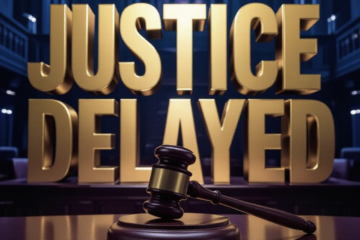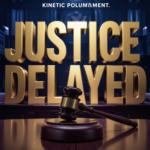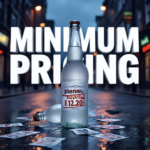Nicola Sturgeon, Scotland’s former first minister, has expressed grave concerns over the implications of the recent Supreme Court ruling on the legal definition of a woman, which she argues could make life “almost unliveable” for transgender people.
Speaking publicly for the first time since the landmark decision, Sturgeon voiced her unease not only with the ruling itself but also with interim guidance released by the Equality and Human Rights Commission (EHRC) that would restrict trans women’s access to single-sex spaces like hospitals, shops, and restaurants.
A Landmark Judgment
The Supreme Court’s ruling last month concluded that “sex” under the Equality Act refers to biological sex, fundamentally impacting the legal recognition of gender. While Sturgeon acknowledged the authority of the court, she emphasized that the challenge lies in how the judgment is implemented in practice. The decision was the culmination of a long-running legal battle that began in 2018, during Sturgeon’s tenure as first minister.
Despite accepting the court’s authority, Sturgeon expressed concerns that the practical application of this ruling could exacerbate discrimination and hardship for transgender individuals, particularly trans women. She noted that early signs suggested the decision could lead to further marginalisation, making daily life “almost unliveable” for transgender people.

Concerns About Interim Guidance
Sturgeon pointed to the interim guidance from the EHRC, which asserts that trans women should not have access to single-sex spaces like those in public establishments or healthcare settings. The guidance is being interpreted by some as a broader restriction on trans people’s rights to access services and facilities based on their gender identity.
“I would be very concerned if that interim guidance became the final guidance,” Sturgeon stated. “I hope that’s not the case because I think that potentially makes the lives of trans people almost unliveable.”
The former SNP leader, known for her strong support of transgender rights, acknowledged the need to balance the protection of women with the rights of transgender individuals. She suggested that the current framework risks creating an “impossibly difficult” environment for trans people, with the potential for further harm if the ruling is applied rigidly.
Transgender Rights and Gender Recognition
Sturgeon also highlighted the broader context of transgender rights in Scotland. Her government had introduced controversial gender recognition reforms aimed at making it easier for individuals to change their legally recognized sex, but these reforms were blocked by the UK government. Despite this setback, Sturgeon reiterated her belief in the importance of transgender rights and emphasized that no apology was needed for championing those reforms.
“Some people are demanding an apology, but I fundamentally disagree,” she said. “There’s no question that we need to respect the dignity and safety of both women and trans people.”
Women’s Safety and the Supreme Court’s Ruling
On the subject of women’s safety, Sturgeon argued that restricting access to single-sex spaces for trans women would not improve protection for women. “The threat to women comes from predatory and abusive men,” she pointed out, suggesting that the real issue facing women is the protection from harmful individuals, not the inclusion of trans women in certain spaces.
She warned against a blanket interpretation of the ruling that could lead to greater division, where trans individuals would be excluded from spaces they rely on. However, Sturgeon also emphasized that the situation wasn’t “inevitable,” urging a more nuanced interpretation that would preserve the dignity and rights of all individuals.
The Opposition’s Reaction
The ruling and Sturgeon’s comments have sparked a backlash from both transgender rights advocates and opponents of her gender recognition reforms. Susan Smith, co-director of the campaign group For Women Scotland, disagreed with Sturgeon’s assessment, calling it “disingenuous.” Smith contended that single-sex spaces were vital for ensuring women’s privacy, dignity, and safety, especially in vulnerable situations.
Smith criticized the idea that life would be made “unliveable” for transgender individuals, calling it “frankly wrong and quite disturbing.” She argued that women’s rights to privacy in certain spaces should be protected, and that the debate shouldn’t focus solely on the interests of transgender people at the expense of women’s safety.
Rachael Hamilton, deputy leader of the Scottish Conservatives, also weighed in, accusing Sturgeon of betraying women and dividing Scotland with her gender self-identification policy. Hamilton called on Sturgeon to apologise to the women of Scotland for the damage she believes her policies have caused.
Looking Ahead
The Scottish Government has stated that it will accept the Supreme Court’s judgment and is awaiting further guidance from the EHRC, which is expected in the summer. The outcome of this case has sparked continued debate over the balance between transgender rights and women’s rights, with both sides of the issue advocating for legal reforms.
As the Scottish Government works on reconciling these perspectives, the future of transgender rights in Scotland remains uncertain, with potential changes to the law still a live issue. The challenge for both government and society will be finding a way to ensure that the lives of both women and trans people can be lived with dignity, respect, and safety


















